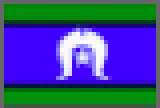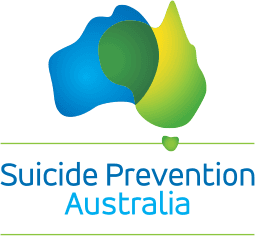Clinical Outcomes in Routine Evaluation 10 CORE-10
Clinical Outcomes in Routine Evaluation 10 CORE-10 overview
Creator and Context
The Clinical Outcomes in Routine Evaluation 10 (CORE-10) is a concise, 10-item assessment measure developed to identify and track symptoms of psychological distress. It is designed for flexibility, being suitable for both screening purposes and ongoing evaluation throughout the course of treatment.
The CORE-10 was developed as a shorter version of the CORE-OM (Outcome Measure) to provide a quick and efficient tool for routine use in clinical settings. Its primary objective is to assess and monitor the progress of individuals undergoing psychological therapy.
Presenting Conditions
The CORE-10 focuses on common presentations of psychological distress, encompassing areas such as:
Anxiety
Depression
Trauma-related symptoms
Functional problems
Administration
The CORE-10 is a self-report questionnaire. Each of the 10 items is rated by the individual based on their experiences over the past week, using a 5-point scale ranging from 'not at all' to 'most or all of the time'.
Desired Audience
This tool is applicable to a wide adult population, particularly in clinical settings where quick assessment of mental health is needed, such as in counselling or psychiatric services.
Ideal for initial screening to identify individuals who may benefit from psychological interventions.
Can be used repeatedly over the course of treatment to monitor changes in symptom severity.
Useful in research settings for evaluating the effectiveness of psychological treatments.
Considerations
The CORE-10 is not a diagnostic tool but a screening and progress-monitoring instrument.
Scores should be interpreted in the context of a broader clinical assessment.
Cultural and individual differences should be considered in interpretation.
How to score the Clinical Outcomes in Routine Evaluation 10 CORE-10
Conducting the assessment
Individuals respond to each item based on how often they have experienced certain feelings and behaviours in the last week, using a 5-point scale from 'not at all' to 'most or all of the time'.
Interpretation
Scores are calculated by summing the responses, with higher scores indicating greater levels of psychological distress. The scoring system is straightforward, making it easy to interpret and compare results over time.
Clinical Considerations
Utilise CORE-10 scores to guide initial discussions about mental health and treatment planning.
Regularly reassess to monitor treatment progress and response.
Integrate results with clinical judgment and other assessment tools for comprehensive care.
Clinical Outcomes in Routine Evaluation 10 CORE-10 use cases
Routine screening for psychological distress in primary care or mental health settings.
Tracking patient progress in therapy.
Evaluating the effectiveness of psychological interventions in research studies.
Category
Anxiety
Research Summary
Barkham, M., Bewick, B., Mullin, T., Gilbody, S., Connell, J., Cahill, J., Evans, C., & Mellor-Clark, J. (2013). The CORE-10: A short measure of psychological distress for routine use in the psychological therapies. Counselling and Psychotherapy Research, 13(1), 3-13.
Evans, C., Connell, J., Barkham, M., Margison, F., Mellor-Clark, J., McGrath, G., & Audin, K. (2002). Towards a standardised brief outcome measure: Psychometric properties and utility of the CORE–OM. The British Journal of Psychiatry, 180(1), 51-60.
Other Assessment Guides
Depression Anxiety Stress Scales DASS-21
Explore the Depression Anxiety Stress Scales (DASS-21) in our comprehensive guide. Learn about its creation, use in assessing emotional states, practical application, scoring, and clinical guidance. Ideal for professionals seeking a detailed understanding of DASS-21's role in mental health assessment
Generalized Anxiety Disorder 7 Item Scale GAD-7
Explore the Generalized Anxiety Disorder 7 Item Scale (GAD-7), a vital tool for screening and measuring anxiety severity. Our guide covers its use, scoring system, and clinical implications, ideal for healthcare professionals and researchers in mental health.
Kessler Psychological Distress Scale K-10
Delve into our detailed guide on the Kessler Psychological Distress Scale (K-10), a crucial tool for assessing anxiety and depression symptoms. Learn about its creation, use, scoring, and interpretation, tailored for mental health professionals and researchers seeking effective distress screening methods.










